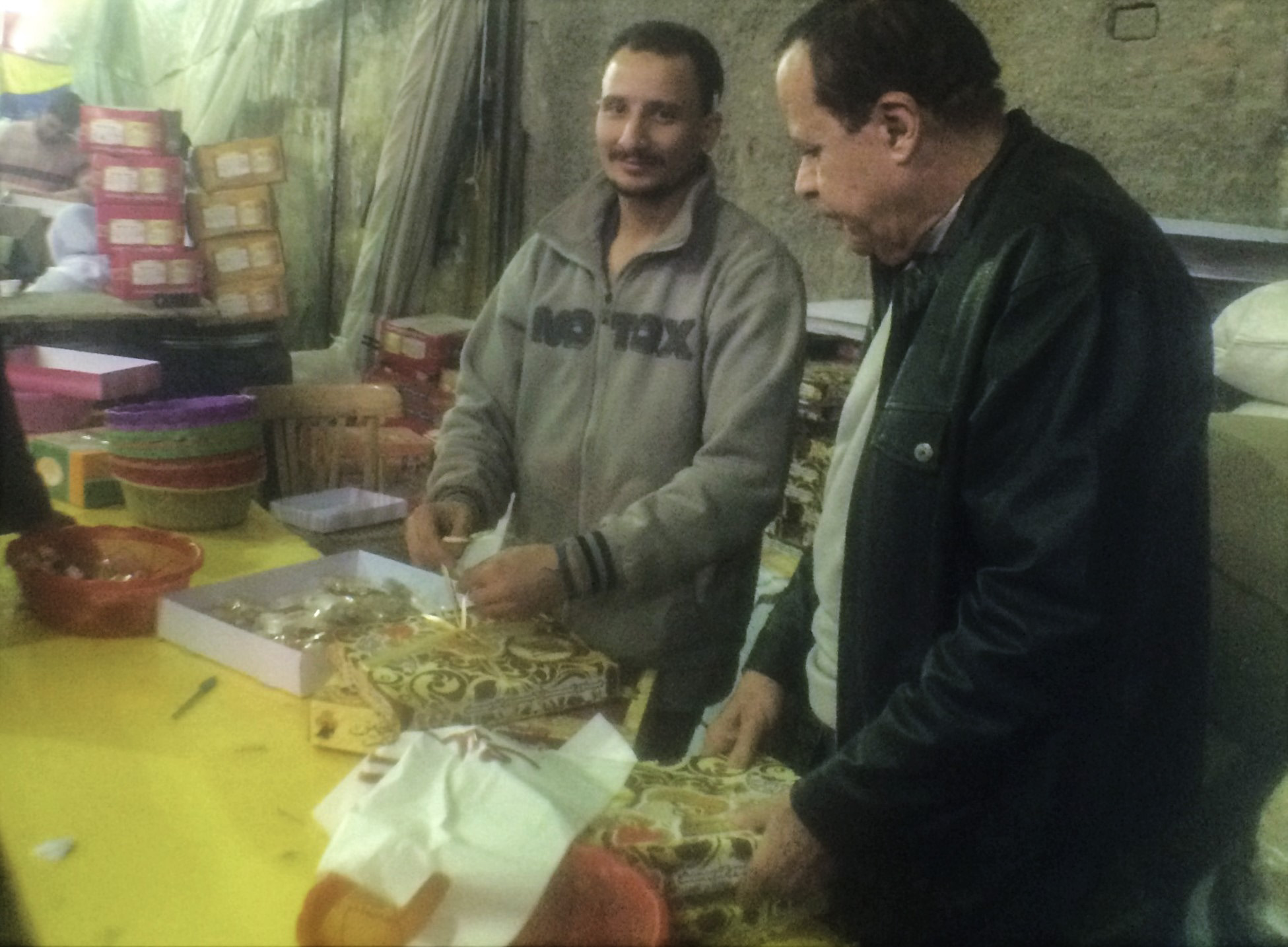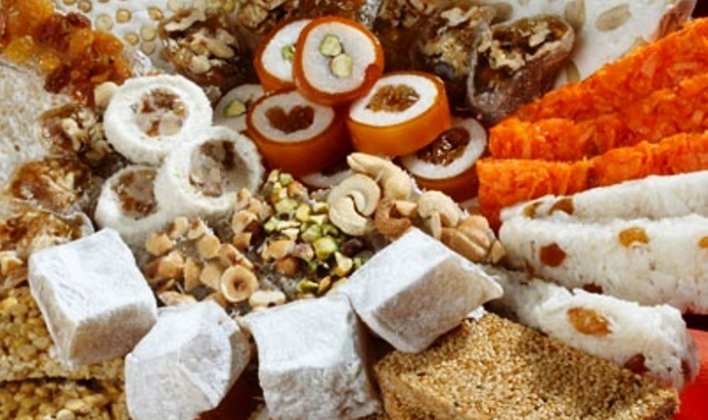Just one night ahead of Moulid el-Nabi (the celebration of Prophet Muhammad’s birth), a famous hub that gathers most of the old sweets factories, Bein el-Harat street, located near Ramsis Sqaure, saw long queues of Egyptians waiting excitedly for their annual treat of the Moulid sweets.
Decorated in colorful lights, the joyful atmosphere of the Moulid festivities were hard to miss while the street welcomed an influx of traders from all over the country who annually arrive at Bein el-Harat to purchase the traditional Moulid el-Nabi sweets, commonly known as Halawet el-Moulid.
This year, celebrating the birth of both Prophets Mohammed and Jesus happens to stand only a couple of days apart, with Muslims celebrating Moulid el-Nabi on December 23, and Catholic Christians celebrating Christmas on December 25.
“We eagerly wait for Moulid el-Nabi to come around from year to year,” says Hussein el-Sayed, 28, one of the busy youths rushing to assist the many customers awaiting their boxes of sweets.
Considered as one of the most bustling seasonal highs for confectioneries across Egypt, Moulid el-Nabi generates a flux of youth who head from their villages to the cities famous for making el-Moulid sweets, hoping to earn some money from assisting the factory owners.
According to Sayed, the demand on buying the Moulid sweets is higher this year in comparison to previous years. Despite the increasing prices, many Egyptians remain committed to the tradition of buying the local seasonal sweets – usually made from a mixture of starch, sugar, glucose and an assortment of nuts.
Besides the sweets, one of the most popular elements that are found across the confectionery shop displays is the rather colorful Moulid doll, referred to as Arouset el-Moulid, which comes in various sizes. Once made out of candy, most of the Moulid dolls today are plastic, and are only intended for decoration.
One of the famous manufacturers of el-Moulid doll is Gamil Abdul el-Maseih Gerges who narrates how he continuously tries to come up with new types of dolls to meet the ever changing market demands.
“This year, I made a rotating doll and another one that works with a remote,” Gerges added gleefully, noting how his wife, who is a seamstress, usually helps him by sewing dresses for the dolls.

Knowing in advance how high the demand is on the Moulid sweets, amm Gerges who works in the confectionery center of Bein el-Harat, started preparing for the festivities two month ahead.
“I work day and night in order to meet the demand. Traders from Delta and Upper Egypt come to [Bein el-Harat] to buy our products and the Egyptian-made sweets.”
This year, the prices of el-Moulid dolls range from EGP 20 ($US 2.55) to EGP 150 ($US 19.16) according to their sizes, the trader said.
Down the same street, Hussein Eissa, who inherited the one of the big factories from his father, added that this year, the increase in imported ingredients coupled with the high prices of local ones caused the sweets’ prices to soar. Needless to say, the fluctuating currency rates, especially that of the US dollar, had their toll on the rising ingredient prices.
According to Eissa Abdu, a shop owner who sells the raw ingredients used for the Moulid sweets, most of the substances are imported from Turkey. Among the various elements which influence the market rates and prices is the privatization of some local factories, such as that of the honey used in the sweets, which led to the inability of controlling the prices of local ingredients.
A kilo of sweets ranges from one shop to another according to the types of sweets and their quality. Typically, a box of el-Moulid sweets ranges between EGP 50 ($US 6.39) and EGP 500 ($US 63.86).
The origin of Moulid el-Nabi dates back to the early Rashidun Caliphs of Islam. The celebration was further initiated by the Fatimids and was celebrated in the lands they ruled.






Comments (0)